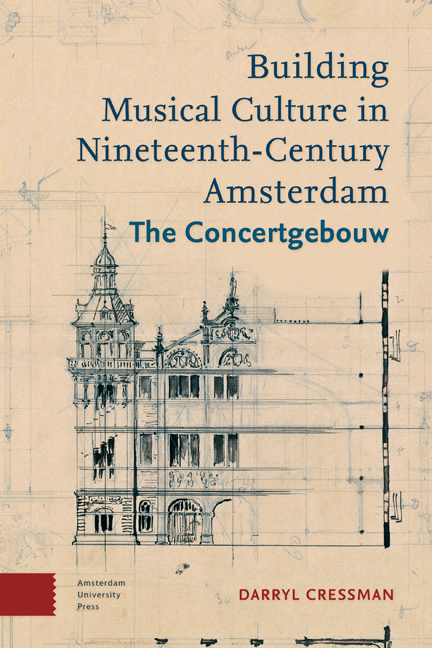Book contents
- Frontmatter
- Contents
- List of Illustrations
- Acknowledgements
- Dedication
- 1 The Concert Hall as a Medium of Musical Culture
- 2 Listening, Attentive Listening, and Musical Meaning
- 3 Patronage, Class, and Buildings for Music: Aristocratic Opera Houses and Bourgeois Concert Halls
- 4 Acoustic Architecture before Science : Designing the Sound of the Concertgebouw
- 5 Frisia Non Cantat: The Unmusicality of the Dutch
- 6 Listening to Media History
- Works Cited
- Index of Names
- Index of Subjects
2 - Listening, Attentive Listening, and Musical Meaning
Published online by Cambridge University Press: 10 December 2020
- Frontmatter
- Contents
- List of Illustrations
- Acknowledgements
- Dedication
- 1 The Concert Hall as a Medium of Musical Culture
- 2 Listening, Attentive Listening, and Musical Meaning
- 3 Patronage, Class, and Buildings for Music: Aristocratic Opera Houses and Bourgeois Concert Halls
- 4 Acoustic Architecture before Science : Designing the Sound of the Concertgebouw
- 5 Frisia Non Cantat: The Unmusicality of the Dutch
- 6 Listening to Media History
- Works Cited
- Index of Names
- Index of Subjects
Summary
In Search of the Listener
The canons of Western musical culture, from classical to jazz to rock, consist of composers, their works, and the musicians who perform these works; the listener is assumed but is of no real importance. Listening is unlike any other moment of the musical experience. Composing, performing, promoting, dancing, selling, distributing, and buying music do not necessarily require the ear. Perhaps it is this defiance of modernity's visual bias that makes listening a problematic object of study. ‘I look desperately, in the forensic history of music, for any place where there is a question of me, the listener. I know in advance this quest is doomed to failure.’ Peter Szendy's fatalism is a bit overindulgent; nevertheless, his lament is a symptom of the difficulty that comes from trying to conceptualize the listener in studies of musical culture. The cultural study of music seems well equipped to detail what we do with music, but it lacks consistent concepts and terms to articulate the listening experience. Listening is either overlooked in favour of composers, musicians, and works, or it is assumed to be passive, an oppressive disposition forced upon us by a nefarious culture industry.
Listening is often contrasted with composition and performance, which are lauded as active engagements with music. That the viewer makes the painting, as Marcel Duchamp claimed, has gone from iconoclastic slogan to an important part of art history. Film and television theorists convincingly argue that mass audiences are not passive but engaged in the interpretation of polysemic texts. In literary theory the reader is considered an active participant in the literary experience3 So why is the listener so rarely considered an active part of musical culture? It could be, as novelist E.M. Forster put it, that ‘listening to music is such a muddle that one scarcely knows how to describe it’. If only it was a problem of words! It is an interesting fact of intellectual history that ‘listening does not figure in the encyclopedias of the past, it belongs to no acknowledged discipline’. Even in those disciplines that take musical culture as its object of study, listening falls between conventional lines of inquiry. Musicologists tend to privilege composition while social scientists, cultural theorists, and media scholars focus on performance and other means of dissemination.
- Type
- Chapter
- Information
- Building Musical Culture in Nineteenth-Century AmsterdamThe Concertgebouw, pp. 29 - 48Publisher: Amsterdam University PressPrint publication year: 2016



